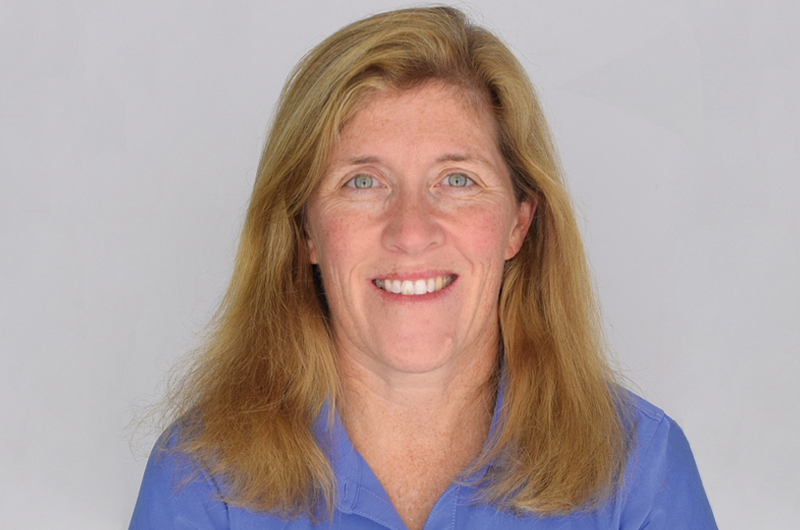Nancy Connor
Jan 25, 2019 - Profiles
Q&A with Nancy Connor, Clinical Nurse Educator at Queen Elizabeth II Health Sciences Centre in Halifax, Nova Scotia
Nancy Connor
Jan 25, 2019 - Profiles
Q&A with Nancy Connor, Clinical Nurse Educator at Queen Elizabeth II Health Sciences Centre in Halifax, Nova Scotia

Nurses play a critical role in providing quality care to patients who visit the Emergency Department (ED) every day. Nurses are part of an emergency care team that works 24/7 to care for patients with conditions that span from non-urgent to life-threatening.
In these daily interactions with patients in the ED, there are often many tests or treatments that are ordered and reviewed by a physician or care team as part of the patient’s full assessment. “Routine” blood tests are included in this assessment to provide diagnostic insight into the patient’s current condition. However, in reviewing blood test guidelines, a multidisciplinary team at the Queen Elizabeth II Health Sciences Centre (QEII Health Sciences Centre) in Halifax, Nova Scotia, found that some tests ordered in these blood panels were unnecessary and not adding value to patient care. Unnecessary blood tests can be harmful to patients, waste laboratory resources and nurse time in gathering blood samples.
Nancy Connor is a Clinical Nurse Educator at QEII Health Sciences Centre that was part of this team that implemented a quality improvement (QI) initiative to review nursing blood test guidelines. By adjusting order sets, educating nursing staff on these changes, and updating blood test guidelines, the project successfully reduced unnecessary blood tests in the ED.
Nancy Connor is also a nurse educator who works closely with new staff and trainees. Nancy has incorporated Choosing Wisely into orientation for new hires and how these principles can be applied to the ED.
Choosing Wisely Canada: How have you incorporated Choosing Wisely Canada recommendations into practice?
Nancy Connor: As a nurse educator, I am involved with onboarding new nurse hires as well as nursing students that have placements in our ED. Many Choosing Wisely Canada recommendations relate directly to our day-to-day work as frontline staff in a busy ED. We interact with many different tests and treatments and it is our responsibility to use our best clinical judgement in each instance we have with patients. From our QI initiative in blood work guidelines, to decreasing unnecessary use of Foley catheters, nursing staff play a key role in successfully implementing many Choosing Wisely Canada recommendations.
I also recognize that campaign recommendations emphasize the importance of considering what value a test or treatment has and what harm it may cause. By emphasizing critical thinking, we are not only teaching evidence-based practices, but we are also encouraging our nursing staff to be advocates for best practices in health care.
CWC: What’s your approach to having conversations with patients about things they may not need.
NC: Emergency departments see a lot of patients with urgent health care concerns or worries who request a series of tests. In these cases, I try to first understand why the patient believes they need a test or treatment. In some cases, they have received these tests before or heard a friend needed these specific treatments for similar conditions. When you have a conversation and understand the patient’s perspective, you can provide more clear information as to why it may be unnecessary as well as reassure them about their concerns. If we can avoid a CT or additional blood work that will not benefit their care, we can avoid potential harm, such as radiation from imaging or needles for blood work.
In a 24/7 care facility, you have to be mindful of patients who may be anxious, frustrated or are in pain. Patients want to be heard and having a conversation can provide a valuable teaching opportunity for when they are discharged and go home. That conversation can have an important role in health education and letting the patient know what they really need to get better.
CWC: What is your motivation for being so involved in efforts to reduce unnecessary care?
NC: In the ED, we tend to be a more independent and autonomous in our practice. The emergency care team works very closely to care for patients before they are discharged or transferred to a unit. But because of this, I think we need to be conscious of the idea that just because we can do something, doesn’t mean that we should. Better care does not always involve more tests. Better care means dialogue with our patients, understanding their goals of care, and making sure what we are ordering is necessary. We know that additional tests and treatments can mean more time spent waiting for patients who need care. So, I believe Choosing Wisely allows us to step back and improve our habits and practices and use resources in the most appropriate way.
